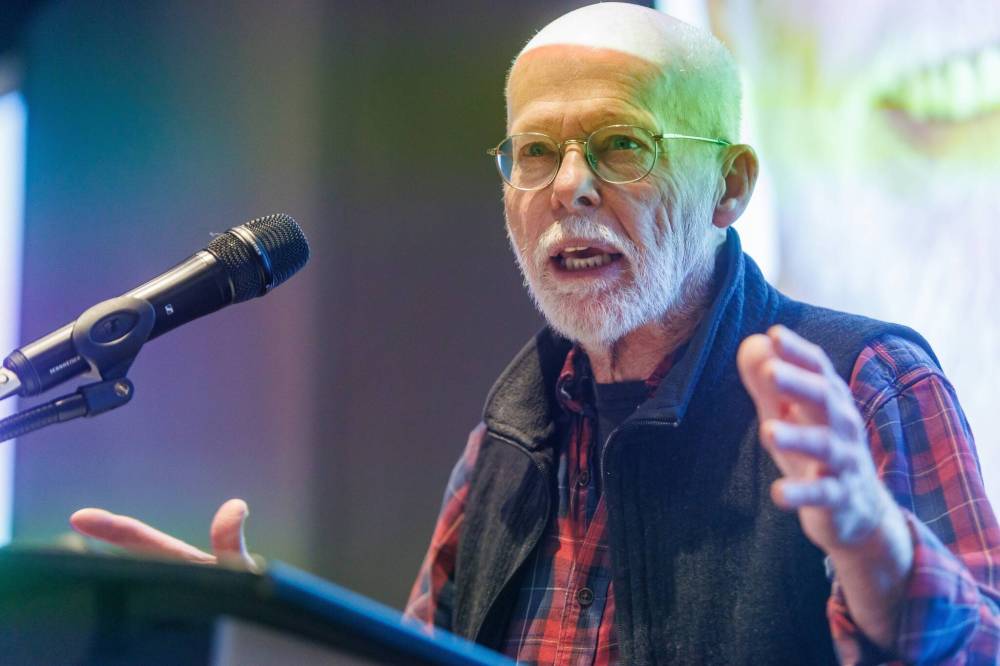Education
New Report Highlights Economic Benefits of Alternative Schools

A recent report underscores the significant economic impact and potential of alternative schools catering to mature students, including adult newcomers and individuals who did not complete their high school education. The analysis, conducted by Jim Silver, a professor emeritus at the University of Winnipeg, reveals that these institutions play a crucial role in enhancing educational access and economic stability for their attendees.
Silver’s research, released in collaboration with the Manitoba Research Alliance and the Canadian Centre for Policy Alternatives, highlights the importance of rethinking traditional educational frameworks. “We ought to be radically re-imagining what education is,” Silver stated, emphasizing that the definition of education should encompass basic adult education alongside the conventional K-12 and post-secondary systems.
Survey results, approved by the university’s ethics committee, were gathered from adults who obtained their mature high school diplomas within the past five years. Conducted by Probe Research, the survey engaged participants from various locations, including Winnipeg, The Pas, Altona, Killarney, and Boissevain, between January 20 and April 28.
The findings are striking: five out of six graduates, equating to approximately 83 percent, reported they are either currently employed, continuing their education, or both. Silver noted that over 60 percent of the 63 individuals who were previously reliant on employment and income assistance indicated they no longer need such support. This transition has led to a reduction in social assistance costs and generated new tax revenues, estimated at $700,000 annually.
Among those sharing their experiences was Norma Zacharias, a 30-year-old mother and student at Regional Connections Immigrant Services in Winkler. Zacharias expressed optimism about her education as a pathway to better job opportunities, stating, “I think it (a high school education) will give me a better opportunity at my work… and see if I can do a little career.” Having relocated to Manitoba from Tamaulipas, Mexico, in 2022, she has embraced her education while balancing childcare and work commitments.
The report launch, held at the Canadian Museum for Human Rights, drew an audience of around 100 attendees, including students and educators. Silver urged the attendees to rebrand adult learning programs, advocating for public recognition of their importance in economic development. The response was overwhelmingly positive, as applause resonated throughout the venue.
In his address, Silver encouraged English teachers to assign students the task of articulating the value of their educational experiences. These writings could then be sent to key political figures, such as Advanced Education Minister Reneé Cable and Premier Wab Kinew. “People pay attention when they get a bunch of letters,” Silver remarked, underscoring the need for advocacy.
The report also indicated that nine in ten study participants noted their children benefited from their parents attending and graduating from adult learning centres. “(A mature diploma) produces not only personal and family benefits, but also fiscal benefits accruing to the province,” the report concluded, suggesting that the Manitoba government breaks even on its investment in adult basic education within a decade.
Silver’s survey has a margin of error of plus or minus 4.83 percentage points, or 19 times out of 20. Graduates participated with the incentive of a prize draw, increasing engagement and response rates.
As education continues to evolve, the findings from this report highlight the urgent need for ongoing support and funding for alternative educational programs. These initiatives not only empower individuals but also contribute to broader economic growth, establishing a foundation for a more educated workforce.
-

 Lifestyle2 months ago
Lifestyle2 months agoWinnipeg Celebrates Culinary Creativity During Le Burger Week 2025
-

 Health2 months ago
Health2 months agoMontreal’s Groupe Marcelle Leads Canadian Cosmetic Industry Growth
-

 Science2 months ago
Science2 months agoMicrosoft Confirms U.S. Law Overrules Canadian Data Sovereignty
-

 Science2 months ago
Science2 months agoTech Innovator Amandipp Singh Transforms Hiring for Disabled
-

 Education2 months ago
Education2 months agoRed River College Launches New Programs to Address Industry Needs
-

 Education2 months ago
Education2 months agoBrandon University’s Failed $5 Million Project Sparks Oversight Review
-

 Technology2 months ago
Technology2 months agoDragon Ball: Sparking! Zero Launching on Switch and Switch 2 This November
-

 Technology3 weeks ago
Technology3 weeks agoDiscord Faces Serious Security Breach Affecting Millions
-

 Technology2 months ago
Technology2 months agoGoogle Pixel 10 Pro Fold Specs Unveiled Ahead of Launch
-

 Science2 months ago
Science2 months agoChina’s Wukong Spacesuit Sets New Standard for AI in Space
-

 Technology2 months ago
Technology2 months agoWorld of Warcraft Players Buzz Over 19-Quest Bee Challenge
-

 Education2 months ago
Education2 months agoAlberta Teachers’ Strike: Potential Impacts on Students and Families
-

 Business2 months ago
Business2 months agoDawson City Residents Rally Around Buy Canadian Movement
-

 Technology3 weeks ago
Technology3 weeks agoHuawei MatePad 12X Redefines Tablet Experience for Professionals
-

 Business2 months ago
Business2 months agoNew Estimates Reveal ChatGPT-5 Energy Use Could Soar
-

 Technology2 months ago
Technology2 months agoFuture Entertainment Launches DDoD with Gameplay Trailer Showcase
-

 Science2 months ago
Science2 months agoXi Labs Innovates with New AI Operating System Set for 2025 Launch
-

 Business1 month ago
Business1 month agoRocket Lab Reports Strong Q2 2025 Revenue Growth and Future Plans
-

 Technology2 months ago
Technology2 months agoInnovative 140W GaN Travel Adapter Combines Power and Convenience
-

 Technology2 months ago
Technology2 months agoGlobal Launch of Ragnarok M: Classic Set for September 3, 2025
-

 Business2 months ago
Business2 months agoBNA Brewing to Open New Bowling Alley in Downtown Penticton
-

 Technology2 months ago
Technology2 months agoNew IDR01 Smart Ring Offers Advanced Sports Tracking for $169
-

 Technology2 months ago
Technology2 months agoArsanesia Unveils Smith’s Chronicles with Steam Page and Trailer
-

 Health2 months ago
Health2 months agoGiant Boba and Unique Treats Take Center Stage at Ottawa’s Newest Bubble Tea Shop










